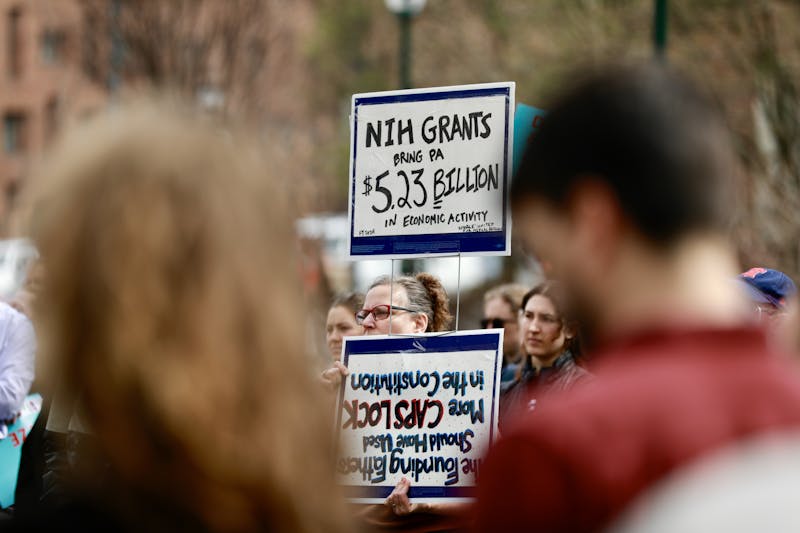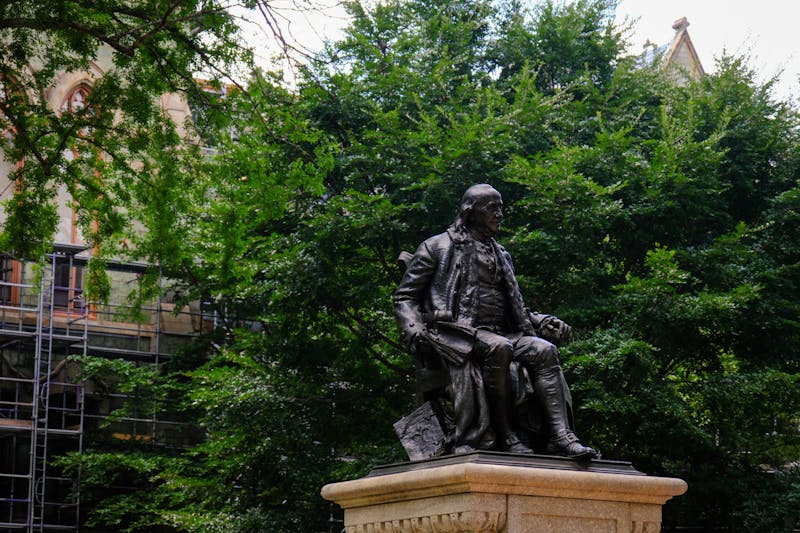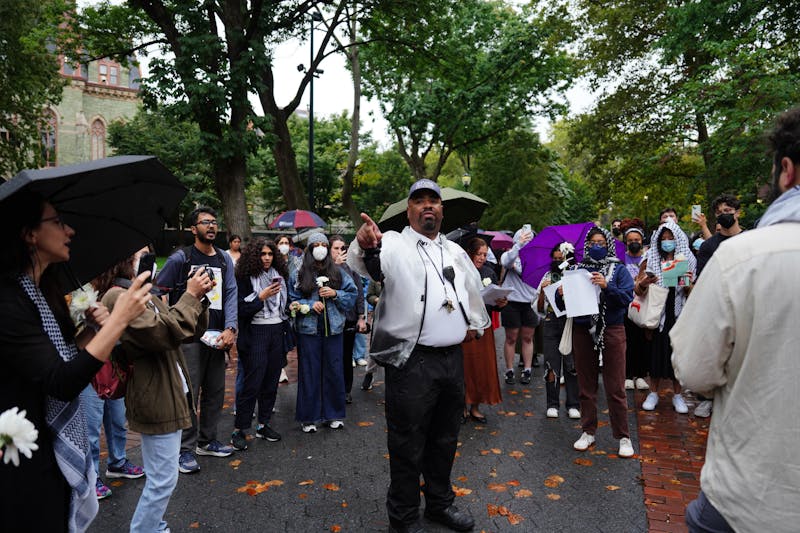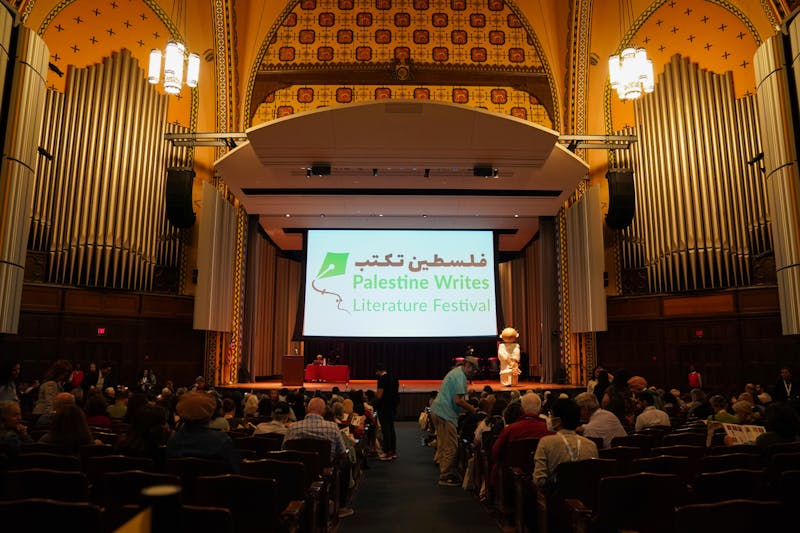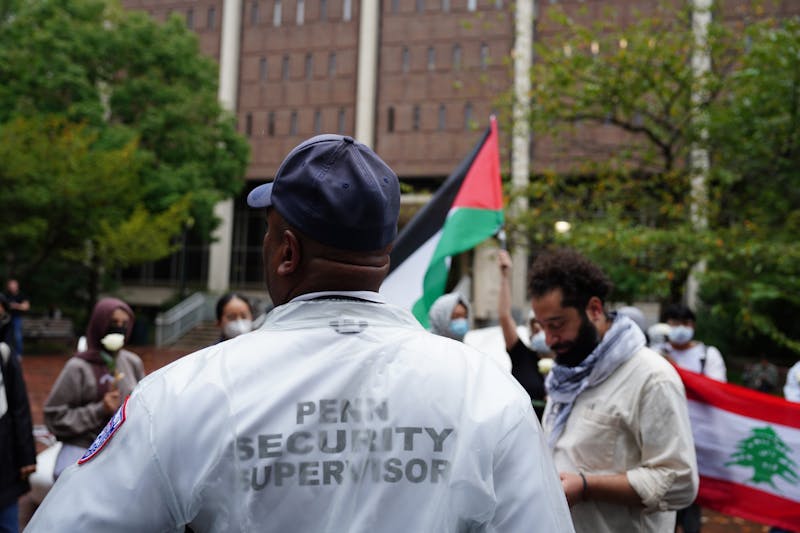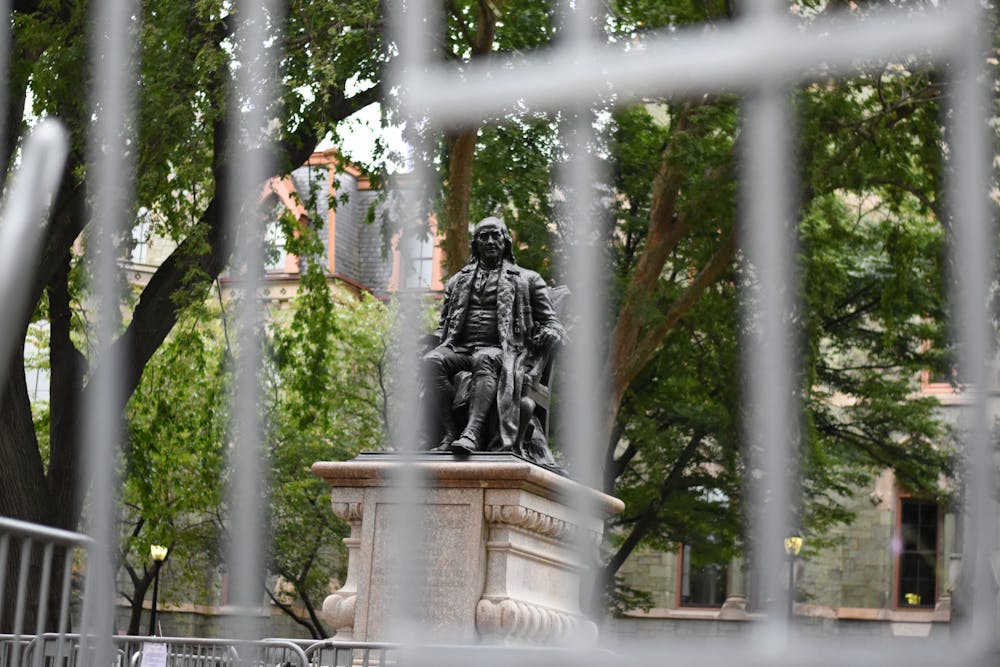
Last year, Penn's administration engaged in a series of unfortunate events that they’re now seeking to rectify and prevent. Rather than speak on every incident in the world, they are moving towards a policy of institutional neutrality. I argued last fall that former Penn President Liz Magill’s statements would get her in trouble, and boy, was I right — they ended up costing her her job.
Penn was the center of a whirlwind of attention which picked up after the Palestine Writes Literature Festival last September. Following the Oct. 7, 2023 Hamas attack on Israel, Magill’s initial statement was deemed too subdued, and the situation devolved to her impending resignation. Scrutiny also followed Interim Penn President Larry Jameson last spring, as the encampment on College Green made national headlines, and his response was carefully critiqued.
In regards to the on-campus tenting protests — which I argued couldn’t be removed with the University’s old guidelines — they have come up with new temporary assembly guidelines which address and avert even the semblance of an overnight protest on campus. These guidelines, titled “Temporary Standards and Procedures for Campus Events and Demonstrations,” are the focus of this article.
To be frank, the University cannot afford another occupied College Green. It upset many students, administrators, and — who some deem most important — donors. While the encampment brought students and the community together, it also disrupted campus life. As someone who had class in College Hall, oftentimes my professor was drowned out by the chants happening right outside the windows. I have so much respect for student protest and its efficacy but completely understand why the University is coming down as hard as they are.
Many of the points in the new guidelines can be directly linked to actions taken by students last school year. From stating that “light projections may not be displayed on any University building or structure without seeking express written permission” to “demonstrations are not permitted to occur in or on … University sculptures and statues,” these guidelines have direct traces to the incident involving pro-Palestinian projections as well as vandalism of the Ben Franklin statue.
However, these guidelines and the general culture towards locking down the University and its operations do more than prohibit tenting on College Green. They have changed life for many greek organizations and clubs, and I suspect, if upheld in their entirety, will have negative effects on student assembly across Penn.
From on-campus parties getting shut down more frequently — sometimes with personalized visits from Office of Fraternity and Sorority Life advisers — to off-campus housewarmings being subject to the same scrutiny, Penn security is on high alert about seemingly all “gatherings” on and around campus. I reached out to OFSL and Student Intervention Services for comment and received no response.
In regards to clubs, Penn is planning on being stricter with funding and room allocation for events. According to the most recent Student Activities Council meeting last week, clubs will need to request rooms for events at least 48 hours in advance (this guideline is also listed in the new campus assembly guidelines), request extra funding for cleaning if the event serves food and has over a certain number of people, and even require security for larger events. All of these things are related to the new institutional policies and will change how clubs that receive SAC funding execute events on campus.
These guidelines are stated to be temporary, but how long is that? The stated purpose is “to reinforce and reaffirm Penn’s commitment to open expression and, at the same time, ensure that protests, demonstrations, and other expressions of free speech are appropriately managed.” I see lots in the policy doing the latter but hope that the former — a commitment to open expression — doesn’t get lost or pushed to the wayside.
Being able to use public space — like College Green — used to be a central part of campus life. Before the fences were erected in the area, I remember bringing picnic blankets, watching people play sports and instruments, or simply socializing in the greenery. Now the grass is often void, and half of it remains untouchable.
I worry that the guidelines meant to address extreme forms of campus protest simply return the reins of power strictly to administration, and will cost students more than they should. Ideally, Penn would be an equitable institution that protects its students, the surrounding community, and its administrators. However, for a long time, Penn has existed separately from West Philadelphia residents and contributed to gentrification. By virtue of these guidelines, they have turned that power to regulate and restrict campus against students too.
Penn seems extremely fearful of more bad press and uncontrollable events happening on campus, and in result, they have raised their fist and cracked down. I’m interested to see how this impacts campus life, and while hoping for a semester where Penn doesn’t grace national headlines or end up on SNL, I also hope to see lively student events flourish in spite of the new barriers.
MIA VESELY is a College junior studying philosophy, politics, and economics from Phoenix, Ariz. Her email is mvesely@sas.upenn.edu.
The Daily Pennsylvanian is an independent, student-run newspaper. Please consider making a donation to support the coverage that shapes the University. Your generosity ensures a future of strong journalism at Penn.
Donate





